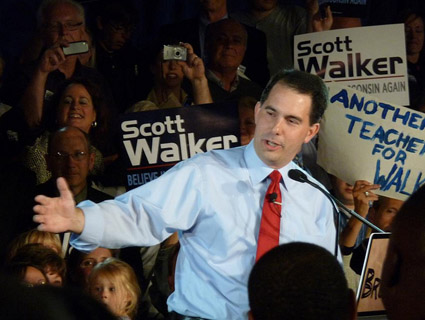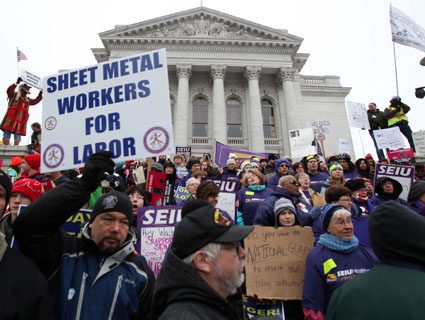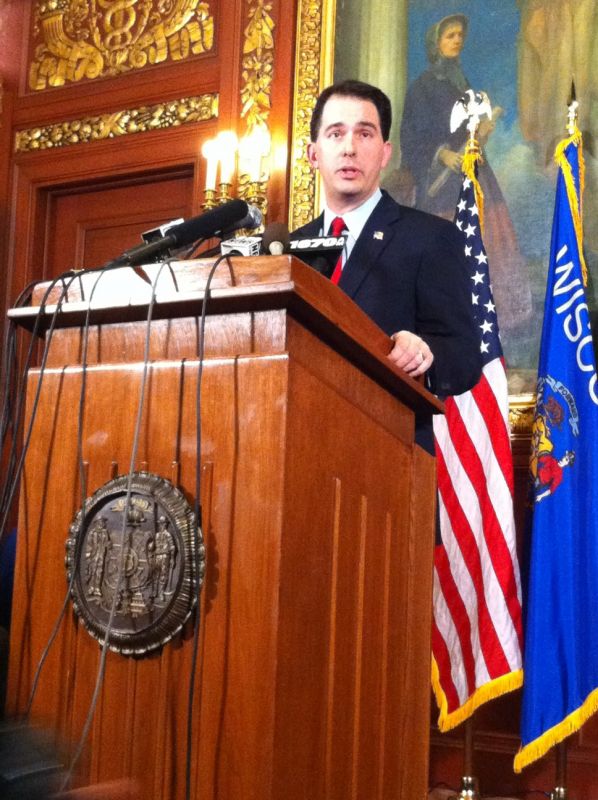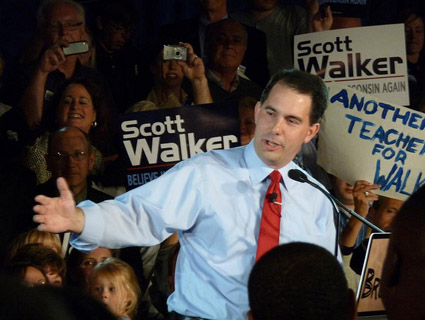
WisPolitics.com/Flickr
In an interview with the Milwaukee Journal Sentinel, Wisconsin Republican Gov. Scott Walker, the man who lit the fuse of 2011’s nationwide union protests, made the not-so-shocking admission that his administration “had not built enough of the case” to slash collective bargaining rights for public workers. Talk about an understatement.
Walker’s anti-union bill, which goes into effect today, was met with massive opposition, including more than 100,000 pro-union protesters who flooded the streets of Madison, the state capital. But the statement that really jumped out from Walker’s interview is his own perception of the bargaining fight:
“They defined it as a rights issue. It’s not a rights issue. It’s an expensive entitlement.”
Hmm. I’m pretty sure the Universal Declaration of Human Rights, passed by the UN after World War II (and drafted and adopted by the US), says that collective bargaining is in fact a human right. Oh, yes, there it is, in Article 23 of the Universal Declaration:
4. Everyone has the right to form and to join trade unions for the protection of his interests.
Then there’s the National Labor Relations Act (NLRA) here in the US, which “explicitly grants employees the right to collectively bargain and join trade unions,” according to the scholars at Cornell University Law School. Or as the National Labor Relations Board’s website puts it, the NLRA “protects employees’ rights to act together, with or without a union, to improve working terms and conditions, including wages and benefits.”
Memo to Scott Walker: Before launching an assault on a right like collective bargaining for workers, you’d be wise to fully understanding what exactly it is you are trying to eliminate. Wisconsin citizens deserve at least that much.


















